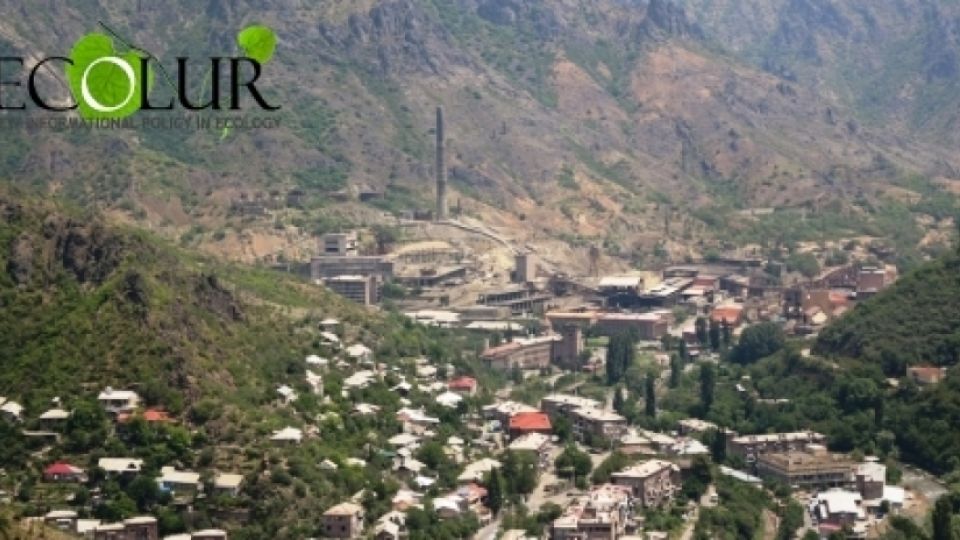Czech environmental public organization “Arnika”, “Center for Community Mobilization and Support” NGO (Alaverdi, Armenia) and “EcoLur” Informational NGO (Yerevan, Armenia) addressed David R. Boyd, UN Special Rapporteur on human rights and the environment and Baskut Tuncak, Special Rapporteur on the implications for human rights of the environmentally sound management and disposal of hazardous substances and wastes. with a letter on the situation in northern Armenia. The letter makes following points:
"In 2018, Czech environmental NGO Arnika, local NGO the Centre for Community Mobilization and Support (Alaverdi, Armenia) and the Informational NGO EcoLur (Yerevan, Armenia) introduced a complex project in Northern Armenia in the towns of Alaverdi and Akhtala (in the Lori marz region). The region is an important mining and smelting centre. There is one copper smelting factory in Alaverdi. In Akhtala there are 3 tailing dumps (2 closed in Akhtala town and 1 functioning in Mets Aurum village). Outdated technologies used in these hotspots have been causing significant damage to human health and biological systems (soil and river water contamination with heavy metals).
Communities located nearby the functioning tailing pond must endure health complications caused probably by leakage and evaporation of tails and dust.
Moreover, the region has been facing social problems due to the closure of the smelting factory in Alaverdi, which was a significant employer for local people. The municipality and extractive industry does not support the people to protect their rights to health and a healthy environment, sometimes forcing them to stop advocating for fundamental green rights.
Since the beginning of our work in the region, we have been supporting people living in the neighbourhood of mines, tailing dumps and factories and their initiatives to protect their health and environment. We are helping local people with analysing the situation and launching campaigns for future improvement.
In the last two years, Arnika conducted two studies to assess the state of environmental pollution in the region related to mining activities. In the first study (2018) samples of soil and water sediments from local river Debed were analysed for heavy metals. Contamination by copper, zinc, molybdenum, lead or arsenic was found in both sediments and soil. Most of the sites that were sampled can be considered as polluted. Local industry was identified as a probable source of contamination.
In 2019 we sampled fruits, vegetables and soil from local farms, gardens to assess the effect of pollution on contamination of food chain. We also analysed hair samples of farmers and other people living close to hotspots (Mets Ayrum tailing dump, Akhtala mines and the Alaverdi copper smelting factory). Again, most of the sites that were sampled can be considered as polluted. The riskiest heavy metal discovered in the hot-spot areas was arsenic, followed by cadmium. All the soil samples were polluted with arsenic, showing that adverse carcinogenic effects associated with the consumption of vegetables may occur in the long term. Moreover, two samples exceeded the hazard quotient (HQ) associated with cadmium, which indicates a non-carcinogenic risk for human health. The analysed soil from the gardens located next to the tailing pond, where the downstream water from Debed river is used for irrigation, showed contamination with heavy metals (especially with As). Additionally, we found high concentrations of dioxins in chicken eggs sampled in Alaverdi."







